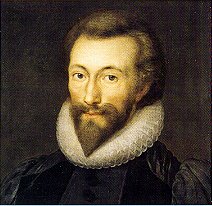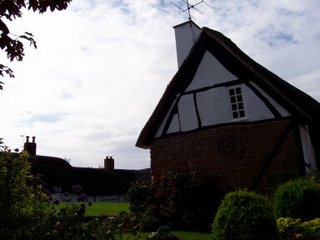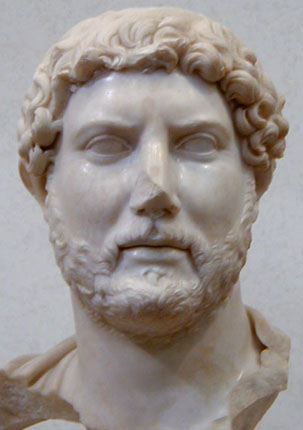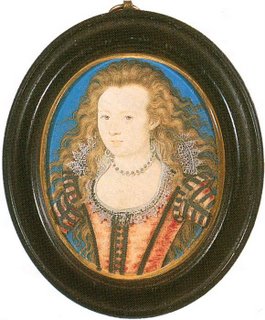Happy John Donne Elected Canon of St. Paul's Day
 John Donne.
John Donne.On this date in 1621, while the Pilgrims and the Wampanoags were sitting down to the first Thanksgiving, nothing much special was happening in England. It was an ordinary day, much like today—unless you were the poet John Donne, who on this day was elected a canon of St. Paul's Cathedral.
In 1613, Donne wrote an epithalamion—a wedding ode—for the wedding of Princess Elizabeth and Frederick, the Elector of Palatine. Elizabeth was the daughter of James I—the same Elizabeth who, as a little girl living at Coombe Abbey, was targeted by the Gunpowder Plotters as a possible puppet monarch. The wedding was on Valentine's Day—
Up then, fair phoenix bride, frustrate the sun ;
Thyself from thine affection
Takest warmth enough, and from thine eye
All lesser birds will take their jollity.
Up, up, fair bride, and call
Thy stars from out their several boxes, take
Thy rubies, pearls, and diamonds forth, and make
Thyself a constellation of them all ;
And by their blazing signify
That a great princess falls, but doth not die.
Be thou a new star, that to us portends
Ends of much wonder ; and be thou those ends.
Since thou dost this day in new glory shine,
May all men date records from this day, Valentine.
Europe in 1621 was in the midst of a long period of religious warfare between Catholics and Protestants—the Thirty Years War. A year earlier, as the Mayflower was approaching Cape Cod, the Protestant Elector of Palatine, Frederick, was defeated by the Catholic forces of the Holy Roman Emperor at White M0untain, near Prague, putting an end to Frederick's hopes of a Protestant Bohemia.
The defeat took place on November 8, 1620. Three days later, the Pilgrims anchored off Cape Cod and signed the Mayflower Compact. On shore, they found the Wampanoag, their numbers already greatly diminished by an epidemic that had raged among them between 1614 and 1620. From a population of 12,000 in 1600, only about 2,000 survived to greet the arriving Pilgrims.
Elizabeth and Frederick, meanwhile, had fled to Protestant Holland—where, until July of that year, a group of English Puritans had been living in exile. In July, those exiled Puritans had left Leiden on the Speedwell to rendezvous with another ship, the Mayflower.
As Canon of St. Paul's, John Donne, who never published a poem in his lifetime, had a notable career as a preacher. On November 13, 1622, he preached a sermon to members of the Virginia Company who were about to set sail for the New World, where they exercised a monopoly on the sale of tobacco to England. Donne exhorted them:
There is a power rooted in nature, and a power rooted in grace: a power issuing out of the law of nature, and a power growing out of the Gospel. In the law of nature, and nations, a land never inhabited by any, or utterly derelicted, and immemorially abandoned by the former inhabitants, becomes theirs that will possess it.
 "Little Virginia," Kenilworth (photographed in September)
"Little Virginia," Kenilworth (photographed in September)Once across the Atlantic, the Virginia Company was soon nearly wiped out by the Powhatans. Relations between the English and the native peoples in Virginia had been sour since the first expeditions of Sir Walter Raleigh in the 1590s. On one of those expeditions, according to legend, Raleigh brought back to England a new vegetable he had discovered in the New World—the potato. Local legend has it that the first potatoes in England were planted here in Kenilworth, in a small area between the High Street and the castle still known as "Little Virginia."



No comments:
Post a Comment